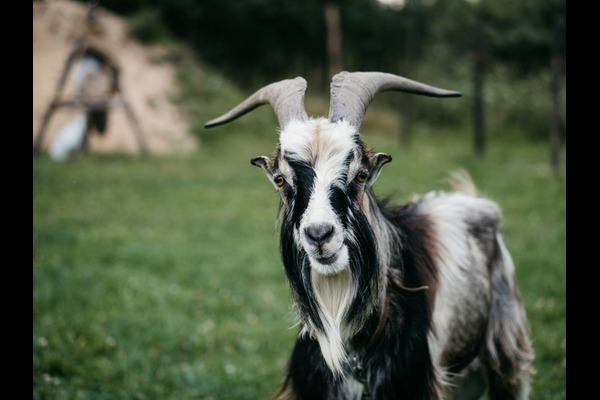UK Farm Animal Import Ban: Impact of Germany’s Foot-and-Mouth Disease Outbreak
By Deborah
In January this year, the United Kingdom declared and imposed a ban on the importation of farm animals into the country after an outbreak of Foot-and-Mouth Disease (FMD) in Germany. This decision, is aimed at protecting the domestic livestock and agricultural industry. It therefore carries great implications for livestock farmers, trade networks, and supply food chains.
What is Foot-and-Mouth Disease?
Foot-and-Mouth Disease is a viral disease of livestock that affects cloven-hoofed animals which includes cattle, pigs, sheep and goats. It is highly contagious and spreads very rapidly. It is transmitted by direct contact with infected animals, contaminated equipments or through airborne route. The outbreak of FMD in an area, has great impact and can lead to severe economic losses due to death of livestock, decreased productivity, and the necessary culling of the affected animals to contain the virus.
The UK’s Import Ban: Key Details
The UK experienced an outbreak of this disease in 2001 and 2002 and this led to the slaughter of many farm animals and this devastating event had a great impact on farmers and the countries in the UK. Therefore, the recent outbreak of FMD has heightened concerns across the European continent, causing neighboring countries, including the UK, to implement preventive measures: restricting importation of livestock to safeguard the livestock industry
The UK government has responded to this outbreak by acting swiftly on enforcing a ban on the importation of farm animals from Germany. This response is designed to reduce the risk of introduction of the disease into British livestock populations, that could be devastating for the agricultural sector.
The legislation made by the Department of Environment, Food and Agriculture (DEFA) in the UK has been updated, and implementation of the restrictions has started. This applies to all cloven-hoofed animals, and it includes live imports of these animals and their products, like meat and milk. Veterinary and inspection services are on alert to monitor the efforts of ports and ensure strict compliance with the restrictions. Also, there are additional measures restricting the importation of wool and hair from animals outside of the British Isles.
Impact of the UK Ban on Farm Animal Importation
1) Economic downturn for German Farmers:
Many German farmers that relied on UK for the exportation of their animals or animal product will face a great financial loss due to the ban. Since the UK is a very significant market, this sudden halt will affect the sales and revenue of farmers in Germany. Many farmers presently, may face the loss of their affected animals due to culling, and they may have to seek for aid from the government or find alternative buyers. Even if adjustments can be made, it will take time and may not fully offset the losses.
2) Increased Biosecurity Measures:
The UK government has tightened biosecurity measures to prevent foot-and-mouth disease from spreading to her countries. This is to protect domestic livestock industry that has a great contribution to the economy. Research showed that the value of the livestock industry was about £5.8billion. Therefore, an outbreak of FMD will have a devastating effect on the industry that will lead to mass culling and restrictions of livestock trade.
3) Supply Chain Disruptions:
With farm animal imports restricted, meat and livestock businesses that rely on German imports face potential shortages. And they might have to seek alternatives from local suppliers or other European countries. This will cause a strain on small scale farmers who depend on trade networks from across the border for breeding stock.
4) Increased Demand for Local Livestock:
While the ban may cause challenges for importers of farm animals, it will create opportunities for UK livestock farmers to meet the local demand for locally bred animals in the countries. However, this may require expanding farm operations and require additional logistical approach to meet the demand of customers.
5) Market Instability:
With reduced imports, UK consumers may face a significant price increase in meat and other products such as dairy. In contrast, German farmers that are unaffected by the disease could struggle with oversupply, that will cause them to reduce their prices domestically. This market instability affects not only farmers but also every other person involved in the farm animal market , and these people are retailers, wholesalers, and trade partners globally. This situation leading to uncertain market conditions.
What’s the Way Forward?
• Enhanced Biosecurity Practices:
It is a must that farmers should adopt and implement stricter biosecurity protocols to protect their farm animals. Measures such as disinfecting equipments and quarantine of new animals before introducing them into herds.
• Emergency Preparedness:
It is advised that governments should invest greatly in early disease detection systems, supply of vaccines, and also ensure that there are rapid response mechanisms put in place to prevent outbreaks of disease.
• Local Livestock Sourcing:
This recent ban highlights the importance of a more self-reliant livestock and agricultural system in the UK, whereby farmers prioritize local sourcing of animals or products and reduce their dependency on imports.
Also Read: Climate Change and Agricultural Adaptations

Comments are closed